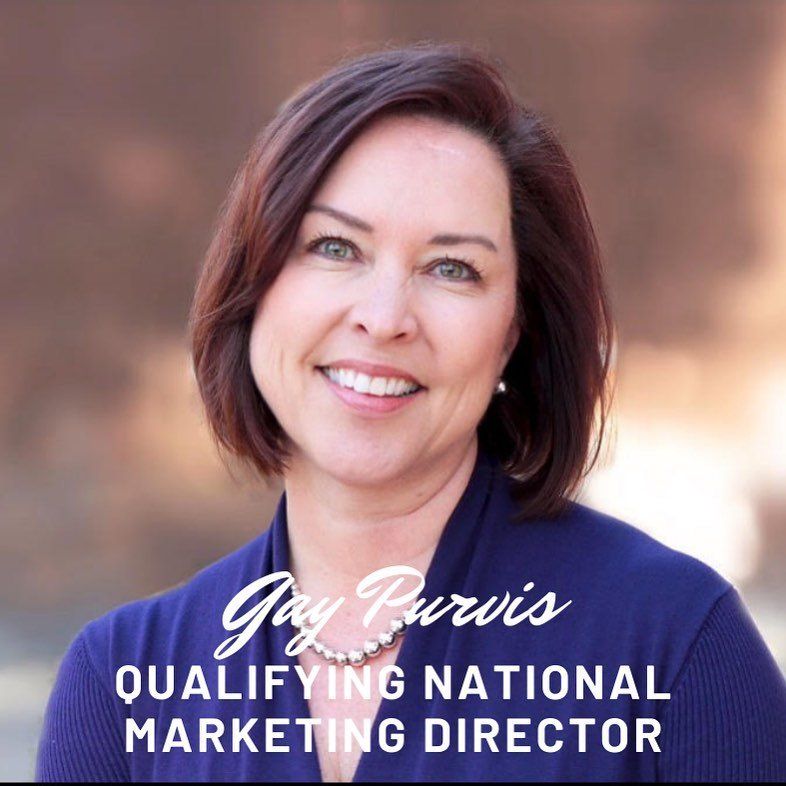Serving Travelers who require special arrangements
Love to help people who think they are unable to travel to show them they can experience the world with our help!
Make Sure You're Prepared for the Journey Ahead!
It's always a good plan to be ready for your new adventure ahead!
Serving Travelers with Disabilities
After traveling many years with our son Adam, I wanted to help serve those who are often overlooked and underserved who love to travel like Adam. This is why I dedicated my business to Adam when he passed away after our Disneyworld vacation. See Adam's dedication under About Us on our website. Along with being a mom of a special needs son, I am also a certified Special Needs Advocate to help All to travel.
I thought you would to see the below article from The Compass:
A practical guide to making your clients’ trips seamless and unforgettable.
Jamie Santillo has been traveling with her family since she was a kid. But living with muscular dystrophy has meant that her vacations have always looked different—and required planning for things such as how to transfer from her wheelchair to an amusement park ride or airplane seat, logistics that able-bodied folks need never consider.
Over the years, there have been soaring highs — Disney World cast members “rolling out the red carpet” during her weeklong birthday celebration at the Orlando park, for example, she says — and some real lows.
Santillo says her worst experience was at another theme park, where she found a staff member joyriding in her wheelchair while she waited to disembark from her ride. When she complained to the manager, they did nothing. It happened 20 years ago, but she still remembers how she felt.
“It made me feel like I didn't matter, that, you know, I was just another number to them,” says Santillo, owner of Adventures by Jamie, a travel agency specializing in accessibility.
The World Health Organization estimates that 1 billion people around the world live with a disability — and, of course, many travel. In 2018 and 2019, adult travelers with disabilities took 81 million trips and accounted for nearly $59 billion in air travel, according to Open Doors Organization, a Chicago nonprofit focused on making transportation and hospitality more inclusive.
Despite these figures, around the world “disabled people still comprise the most underserved segment within tourism,” according to NextBillion, a social entrepreneurship site affiliated with the University of Michigan.
This level of research and planning for accessible travel takes time, but Santillo doesn’t charge a consultation fee. Instead, Santillo, who has a master’s degree in management and 20 years of experience in marketing, focuses on adding value and serving clients. She recognizes that delivering a spectacular vacation to one client will likely lead to referrals.
And her approach is working. Santillo left her host agency to found Adventures with Jamie in September of last year. In that short time, it has grown to a full-service agency with 27 employees, in the midst of the global pandemic.
Many members of her team have direct experience with disability -- their own or a family member’s -- and everyone is certified through Special Needs Group, giving them additional insights about how to best serve clients. Ultimately, it’s about delivering great service and making travel dreams come true, Santillo says.
“I've made some long-lasting relationships with my clients,” she points out. “And I'm just so, so thankful to be able to provide a service for them.”
Originally appeared in the summer 2021 issue of The Compass Magazine.
Travel advisors have an opportunity to curate meaningful travel experiences for this largely overlooked group of travelers, but getting it right is crucial. For this demographic, missing the mark may not just lead to a lackluster vacation—it could jeopardize your client’s physical and mental wellbeing.
Accessible Travel Is More Than You Think
First, you need to know which disabilities and conditions can impact travel—and there are more than you think.
“A lot of times when people think about disability, they think [about] somebody in a wheelchair, somebody that you can actively see has a vision impairment or something of that nature,” says Santillo. “They forget about disabilities that are not visible.”
Truly accessible travel addresses the needs of “people with disabilities, but also access for people with temporary disabilities, families with young children and the increasing aging population,” through physical infrastructure and universal design, says Wheelchairtraveller.org, referencing a UN World Tourism Organization report.
In our interview, Santillo uses “special needs” to refer to the array of conditions that may require accommodation during the travel experience. Even pregnancy and food allergies fall into this category, says Santillo, something that she discovered while completing her accessible travel advocate certification through Special Needs Group.
Neurodiversity, a broad term that describes mental illness, spectrum disorders, learning disabilities and other brain function variations, should also be on your radar.
Traveling can trigger panic and anxiety because there are so many variables outside of our control. CN Traveler reports that, according to the Anxiety & Depression Association of America, 40 million people in the United States have anxiety, making it the nation’s most prevalent mental illness. “Even more people — about 25 percent of the population — are specifically anxious about travel. And those are pre-pandemic numbers,” the story says.
Careful planning by travel advisors and clients can help people with a range of disabilities, including spectrum disorders such as autism, have rich travel experiences.
“Different people have different triggers and needs,” explains Alexandra Wisotsky, a travel advisor for Polka Dot Bow Adventures, referring to clients with autism. “Knowing what to expect is very helpful for families to navigate their vacations best.”
Wisotsky lets “families guide me as to what they need,” but shows up ready with an array of options, including destinations where staff are “trained to work with children on the autism spectrum.”
“I make sure that families know about all of the options available to them that will make their vacation easier and more enjoyable,” says Wisotsky.
Asking the Right Questions
But to find out exactly what your client needs, you have to know what—and how—to ask.
“Just like a reporter, you have to ask really good questions and then, of course, listen to what your clients are saying,” says Lynn Clark, a travel agent affiliated with Travel Leaders. “You have to understand the impact of the person’s disability to be able to help them.”
Don’t be shy about these conversations, says Santillo. Your client is an expert and will tell you what they need—but you have to be “comfortable getting very personal,” she points out.
“When planning an amazing holiday for clients with disabilities it is important to remember that they are driving the ship,” says Kayti Behrends, an advisor at Adventures by Jamie. “They live a life that you and I may not have any insight into, and it is crucial to take the time to listen to their wants and needs.”
These needs can be extremely individual and specific. For example, Behrends’ close family member with Down syndrome “is very sensitive to certain situations and triggered by certain weather,” she says.
Harli McCullough, an Adventures by Jamie agent whose son has nonverbal autism, says, “[N]ot all accommodations are necessarily physical. My son needs a ‘cool down area’ or a quiet place to regulate his emotions.”
Behrends, McCullough and their colleague Wendy Truckenbrod suggest the following questions that fellow travel advisors can use to get specifics about clients’ needs:
· What does a typical day look like for you or your family member? Are your days very active or are they more laid back?
· Do you find yourself wanting or needing frequent breaks throughout the day?
· Are there any "triggers" or situations that need to be avoided for you or your family member, including sounds, visuals, foods, etc.?
· What kind of weather best suits you, your interests or comfort level? Are there certain times of year or weather conditions—high humidity, cold temperatures—that we should avoid?
· Has there ever been a situation of shock for you or your family member? If so, what were the circumstances?
· Are there specific things you consider "comforts"? Where are you most comfortable?
· What does the perfect day look like for you or your family member?
· What makes you or your family member smile the most?
· What are your goals for this specific vacation?
· Are there any trip requirements that are non-negotiable?
Santillo also advises asking about what trips your clients have taken before and what specific actions from service providers made them feel supported—and situations that have missed the mark. Santillo, for example, loves cruising and spends a lot of time at Disney because of the resort’s accessibility and experienced, well-trained staff.
Finally, when putting together any travel package, avoid making assumptions about your client’s preferences or what they may be comfortable doing based on your understanding of their disability or limitations. Santillo’s own recent trips have included skydiving, a hot-air balloon ride and zip-lining over alligators at GatorLand.
"After the excursion has happened, I'll call my family and be like, ‘Guess what I just did?’” she says. “I don't [want to] give them a heart attack beforehand.”
On the other hand, just because someone can do something doesn’t mean they want to do it on their vacation, Santillo notes.
“I always remind others that you can never put one wheelchair user and another wheelchair user in the same box,” says Santillo. “We are not all created equal. Our needs are different when it comes to daily life and travel, of course.”
Santillo has clients watch YouTube videos (like hers) by travelers with similar ability levels and then asks follow-up questions to gauge their comfort level with specific activities. She also recommends that travel advisors sift through reviews of hotels and service providers and check out Brett Approved, an accessible travel site that she likens to the popular review site Angie’s List.
Leveling Up Your Logistics Game
The most challenging part of accessible travel planning for many travel advisors is likely logistics.
“If you don't live this life, or if you don't know somebody that does, you just don't think about it because you don't have to,” says Santillo, referring to accessibility and accommodations.
When Clark planned a bespoke Virginia Woolf-themed trip to England for a client with vertigo, she walked through every step of the trip with vendors, hammering out details like “the porter will literally meet her at the curb, walk her into the train station, get her into the car and then leave,” she says. “You know, just really pushing for the details of what the client can expect. What it comes down to is that you're their advocate.”
Travel advisors should also consider certification. Special Needs at Sea offers an accessible travel advocate certification for advisors. And Wisotsky completed her autism training and certification through IBCCES.
“I wanted to do my due diligence to help everybody check off those bucket-list travel items. And so I made sure that our agency was special-needs certified,” says Santillo. “I'd say even if special-needs travel is not your specialty, it is a wonderful certification to have in your wheelhouse.”
Other recommendations include:
· Ask around in Facebook travel agent groups for on-the-ground information for destinations you’re unfamiliar with
· Seek out trusted vendors like Special Needs at Sea for resources such as wheelchair rental or oxygen tanks
· Get to know the people in charge of ADA compliance at destinations and hotels, who can answer questions about special-needs accommodations.
· Research travel insurance. In most cases, it should cover pre-existing conditions, but policies can be confusing, so make sure both you and your client are clear on what is covered. (Know that travel insurance doesn’t necessarily cover things such as wheelchair or prosthetics replacement).
This level of research and planning for accessible travel takes time, but Santillo doesn’t charge a consultation fee. Instead, Santillo, who has a master’s degree in management and 20 years of experience in marketing, focuses on adding value and serving clients. She recognizes that delivering a spectacular vacation to one client will likely lead to referrals.
And her approach is working. Santillo left her host agency to found Adventures with Jamie in September of last year. In that short time, it has grown to a full-service agency with 27 employees, in the midst of the global pandemic.
Many members of her team have direct experience with disability -- their own or a family member’s -- and everyone is certified through Special Needs Group, giving them additional insights about how to best serve clients. Ultimately, it’s about delivering great service and making travel dreams come true, Santillo says.
“I've made some long-lasting relationships with my clients,” she points out. “And I'm just so, so thankful to be able to provide a service for them.”
Originally appeared in the summer 2021 issue of The Compass Magazine.
Tips: Smart travelers are also savvier travelers as they are better prepared for their trips. Check out better Travel Insurance protection as you travel further.
Save Time
Save Money
Experience More
24/7 Support
What Are Travel Protection and Travel Insurance?
Do I Need Travel Insurance or Trip Protection
Travel Protection
Travel Insurance
Customer Quotes

Chris

J.N.

G.P.

Maryellen
The information contained in this website is intended for general informational purposes only.
Testimonials found on this website are actual client reviews of LAND AND SEA TRAVEL, LLC.
Prospective clients may not obtain the same or similar results.
Land and Sea Travel®
GET IN TOUCH
MENU
© 2021 - 2024 LAND AND SEA TRAVEL, LLC, All rights reserved.
Made with ♥ by Makin Moves Marketing

